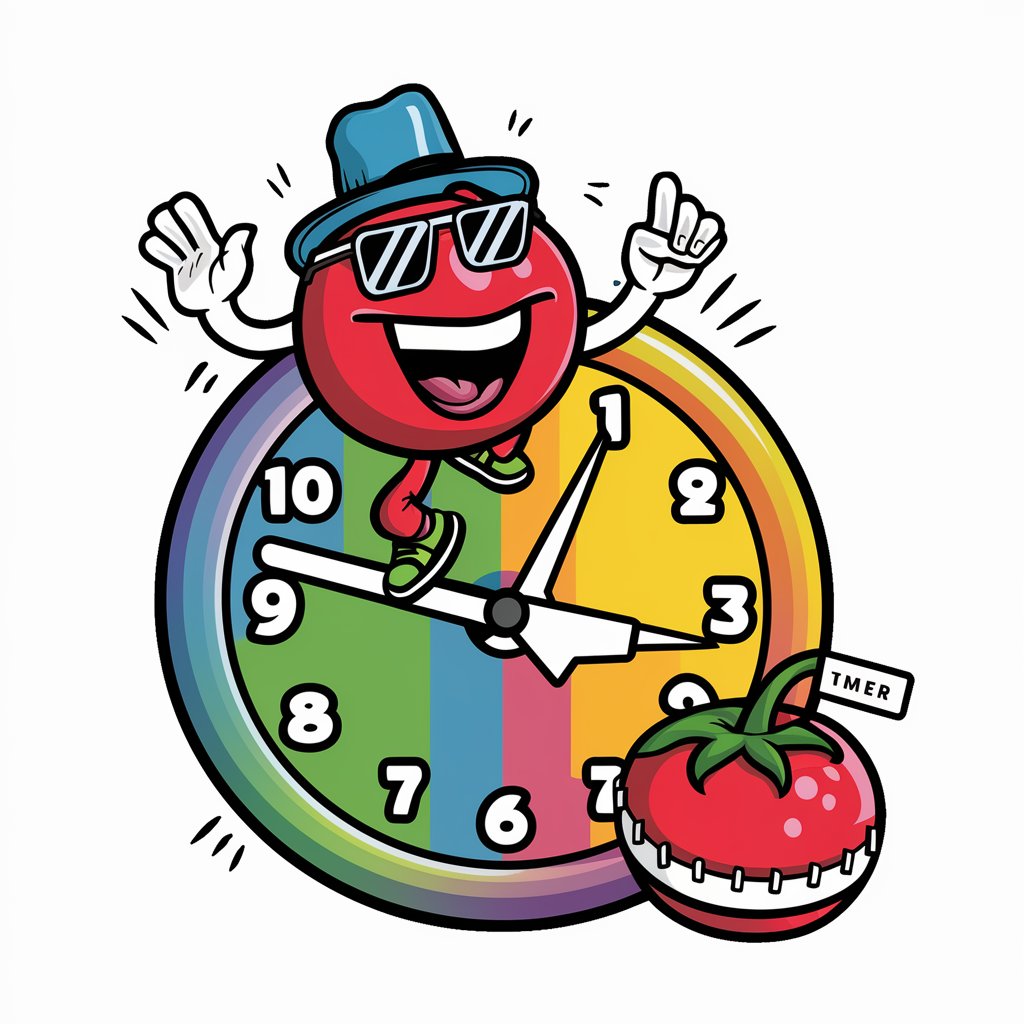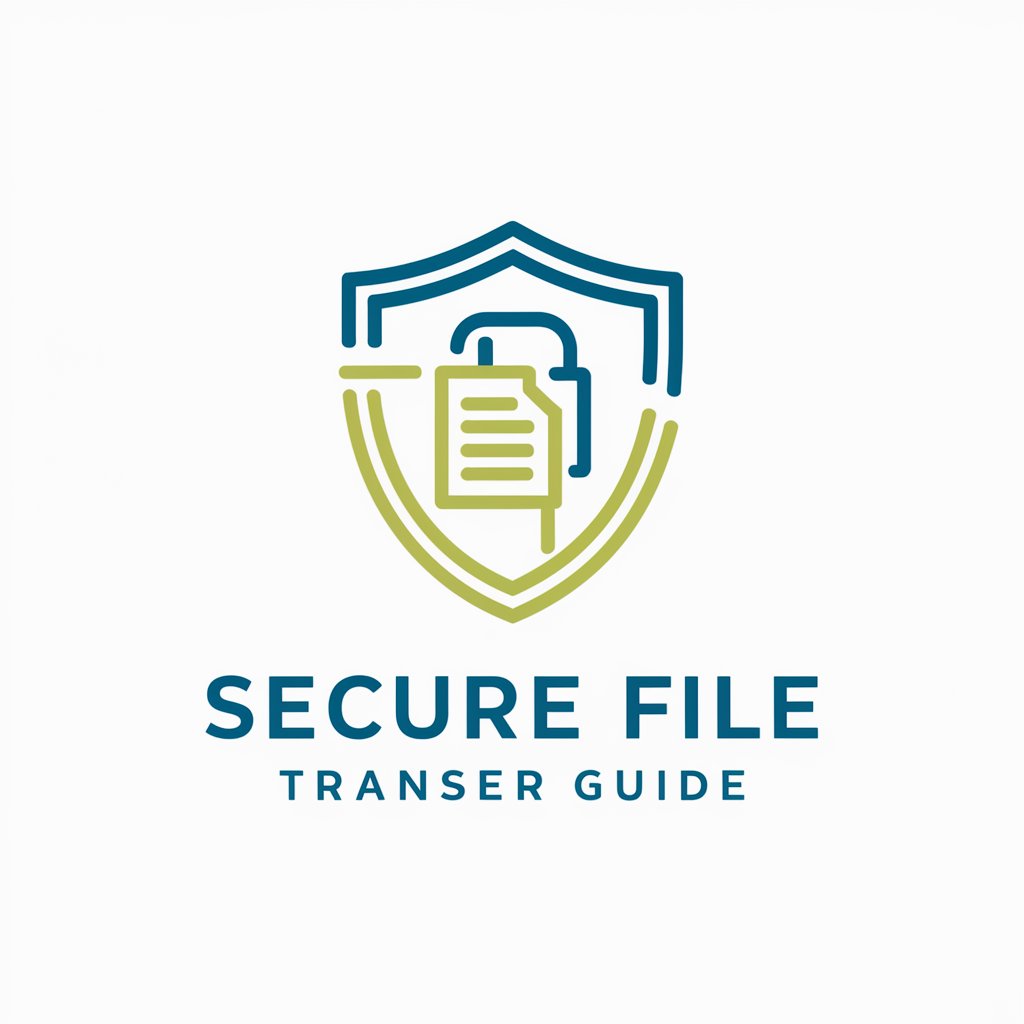
Pomodoro Technique 4 ADHD - Customizable Focus Sessions

Hey there! Ready to rock your productivity with a fun twist?
Harness your focus. Unlock your potential.
What's the best way to adapt the Pomodoro Technique for your needs today?
Feeling distracted? Let's brainstorm some creative ways to stay focused!
How did your last Pomodoro session go? Any highlights or challenges?
Ready to tackle your tasks? Let's make a game plan together!
Get Embed Code
Exploring Pomodoro Technique 4 ADHD
Pomodoro Technique 4 ADHD is a customized approach to time management designed specifically for individuals with ADHD or neurodiverse needs. By adapting the traditional Pomodoro Technique, which involves breaking work into intervals (traditionally 25 minutes in length) separated by short breaks, this version introduces flexibility and personalization to accommodate the unique challenges and strengths of ADHD individuals. It offers a variety of tools and strategies, such as customizable time intervals, engaging break activities, and motivational rewards to maintain focus and interest. For example, while a standard Pomodoro might suggest a 5-minute break, Pomodoro Technique 4 ADHD could propose a 'dance-off' or a 'quick quest' to find something blue, making breaks more engaging and beneficial for someone with ADHD. Powered by ChatGPT-4o。

Core Functions of Pomodoro Technique 4 ADHD
Customizable Time Intervals
Example
Instead of the rigid 25-minute focus periods, users can adjust the duration to better suit their attention span, whether it be 15, 20, or even 30 minutes.
Scenario
A user finds that 25 minutes is too long to maintain focus but achieves optimal productivity with 20-minute intervals. They set their timer for 20 minutes of work followed by a 5-minute break, enhancing their concentration and output.
Engaging Break Activities
Example
Breaks are designed to be more than just time away from work; they include activities like physical exercises, quick games, or creative challenges.
Scenario
During a 5-minute break, a user engages in a mini scavenger hunt in their living space, rejuvenating their mind and preparing them for the next work interval.
Motivational Rewards System
Example
Users earn rewards based on the number of Pomodoros completed. These rewards can be self-assigned, such as watching an episode of a TV show or a longer break.
Scenario
After completing four Pomodoros, a user rewards themselves with a 20-minute episode of their favorite series, providing a sense of accomplishment and a tangible incentive to maintain focus.
Who Benefits from Pomodoro Technique 4 ADHD?
Students with ADHD
Students struggling with maintaining focus on their studies can greatly benefit. The technique's structured yet flexible approach can help manage homework, revision, and project work, making learning more manageable and less overwhelming.
Professionals with ADHD
ADHD professionals often face challenges in managing time and staying on task during work. The technique offers a way to break down work into manageable chunks, improve productivity, and reduce the stress of deadlines.
Creatives with Neurodiversity
Creative individuals with ADHD or other neurodiverse conditions can find the rigid structure of traditional work patterns stifling. Pomodoro Technique 4 ADHD allows for flexibility and encourages breaks that can stimulate creativity, making it ideal for writers, artists, and designers.

Getting Started with Pomodoro Technique 4 ADHD
Start Your Journey
Kick-off by heading over to yeschat.ai to begin your adventure with Pomodoro Technique 4 ADHD, free of charge and no signup required. This ensures you get a taste of productivity without any upfront commitment.
Customize Your Timer
Set up your Pomodoro timer according to your focus ability. Typically, a 25-minute focus period followed by a 5-minute break is recommended, but feel free to adjust this to better suit your ADHD needs.
Identify Your Task
Choose a single, specific task or project to work on during each Pomodoro session. This helps in maintaining focus and achieving a tangible outcome by the end of your session.
Minimize Distractions
Prepare your workspace by removing potential distractions. Use noise-cancelling headphones, turn off unnecessary devices, or use apps to block social media during your focus periods.
Reflect and Adjust
After each session, take a moment to reflect on your productivity. Adjust your working times, break lengths, or tasks as needed to improve focus and output in subsequent sessions.
Try other advanced and practical GPTs
Awema - ScenarPro ( Decoupage technique )
Crafting Stories with AI-Powered Precision

Nanofabrication Technique Innovator
Empowering Nanoscale Innovation with AI

Powerlifting Technique
Master Lifting with AI Guidance

Swimming Technique Master
Dive Deeper with AI Coaching

Pomodoro Technique Coach
Elevate focus with AI-powered precision

Imaging Technique Developer
Powering Imaging Innovation with AI

Michael Chekhov's Technique Coach
Empower your acting journey with AI-driven insights.

What Naruto Character Am I?
Discover Your Inner Ninja

Career Pathfinder
Navigate Your Career with AI Insights

Secure File Transfer Guide
Empowering secure file exchanges with AI

Patent Writer
Streamlining Patent Drafting with AI

Book Drafter
Refining Narratives with AI Insight

Frequently Asked Questions about Pomodoro Technique 4 ADHD
What makes Pomodoro Technique 4 ADHD different from the traditional Pomodoro Technique?
Pomodoro Technique 4 ADHD is tailored to the unique challenges faced by individuals with ADHD. It emphasizes flexibility in timing, customizable focus sessions, and incorporates ADHD-friendly strategies to maintain engagement and minimize distractions.
Can I adjust the focus time and breaks in Pomodoro Technique 4 ADHD?
Absolutely! Flexibility is key for ADHD minds. You can adjust the length of focus periods and breaks to match your personal productivity rhythm. This customization ensures you work during your peaks of focus and rest when needed.
How do I handle distractions during a Pomodoro session?
Start by preparing your environment: use apps to block distracting websites or notifications and keep your workspace clutter-free. If distractions arise, jot them down to address during breaks or after your focus session.
Is Pomodoro Technique 4 ADHD suitable for long-term projects?
Yes, it's ideal for breaking down long-term projects into manageable tasks. This method helps in maintaining momentum and providing a sense of accomplishment as you complete each Pomodoro session, making daunting projects feel more achievable.
Can this technique help with study habits for students with ADHD?
Definitely. Students can benefit greatly from the structured focus and break intervals, making study sessions more productive and less overwhelming. Customizing the session lengths can help match individual attention spans and learning styles.